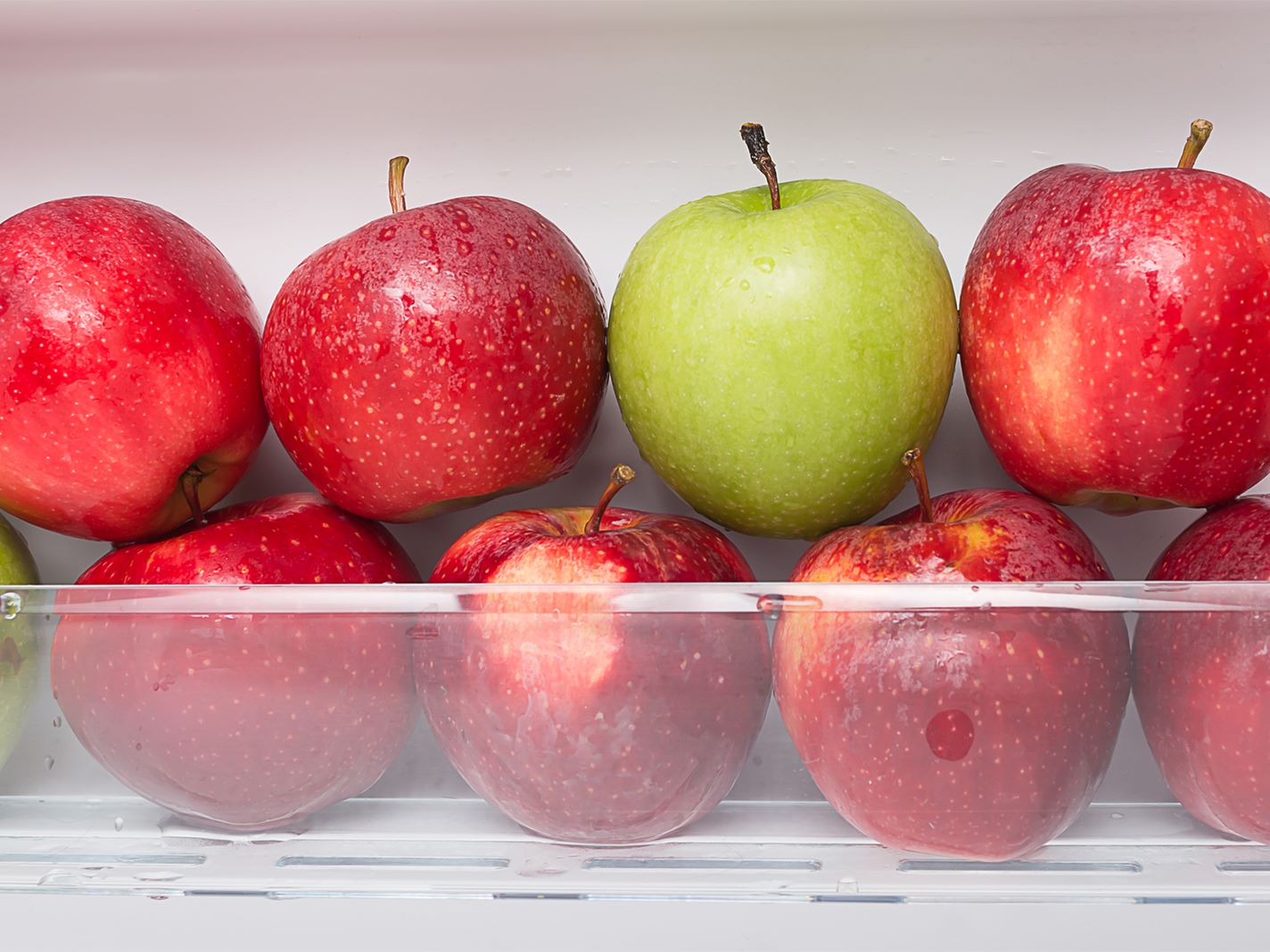

Articles
How To Store Apples In Fridge
Modified: March 26, 2024
Learn the best method to store apples in the fridge and keep them fresh for longer. Read our informative articles for helpful tips on preserving your favorite fruit.
(Many of the links in this article redirect to a specific reviewed product. Your purchase of these products through affiliate links helps to generate commission for Storables.com, at no extra cost. Learn more)
Introduction
Apples are one of the most popular and versatile fruits enjoyed by people all around the world. They are not only delicious but also packed with essential nutrients and health benefits. However, properly storing apples is crucial to maintain their freshness and extend their shelf life. One of the best methods to store apples is by keeping them in the fridge.
Storing apples in the refrigerator can help slow down the ripening process and keep them fresh for a longer period of time. This is especially beneficial when you have a large quantity of apples or want to store them for an extended period. In this article, we will explore the benefits of storing apples in the fridge and provide you with helpful tips on how to do it effectively.
Key Takeaways:
- Storing apples in the fridge preserves their freshness, nutritional value, and flavor, making them a convenient and healthy snack or ingredient for longer periods.
- Proper organization, preparation, and storage techniques in the fridge help extend the shelf life of apples, reducing waste and ensuring easy access to fresh and delicious fruit.
Read more: How To Store Cut Apples In Fridge
Benefits of Storing Apples in the Fridge
Storing apples in the fridge offers several advantages. Firstly, it helps to prolong the shelf life of the apples. The cool temperature of the refrigerator slows down the ripening process and helps maintain the crispness and texture of the fruit. This means that you can enjoy your apples for a longer time without worrying about them spoiling.
Additionally, refrigeration can help preserve the nutritional value of the apples. Many important nutrients in apples, such as vitamin C and antioxidants, are sensitive to heat and air exposure. By storing the apples in the fridge, you can ensure that these nutrients are well-preserved, allowing you to reap the maximum health benefits.
Another benefit of storing apples in the refrigerator is that it can help prevent the growth of bacteria and mold. The cool temperature inhibits the growth of microorganisms, reducing the risk of spoilage and extending the freshness of the apples. This is particularly important if you have purchased a large quantity of apples or if you want to store them for an extended period.
Furthermore, refrigeration can also help retain the natural flavor and aroma of the apples. By storing them in a controlled environment, you can ensure that the apples maintain their unique taste and smell for a longer period of time.
Choosing the Right Apples for Refrigeration
When it comes to storing apples in the fridge, it is important to choose the right variety. Not all apples are suitable for refrigeration, as some may lose their texture or flavor when subjected to cold temperatures.
Generally, apples with a higher sugar content and firm texture tend to fare better when stored in the fridge. Varieties such as Honeycrisp, Granny Smith, and Fuji are known for their firmness and ability to retain their taste and texture when refrigerated. On the other hand, softer varieties like Golden Delicious or Red Delicious may become mealy or lose their crispness when stored in the fridge.
It’s also worth considering the ripeness of the apples. For optimal results, it is recommended to store apples in the fridge when they are still slightly under-ripe. This ensures that they are not overly ripe and will have a longer shelf life.
Preparing Apples for Refrigeration
Before storing apples in the fridge, it is important to prepare them properly to ensure their freshness and prevent spoilage. Here are the steps to follow:
- Inspect the apples: Check for any signs of damage, such as bruises or cuts. Damaged apples should be consumed or used before storing.
- Wash the apples: Rinse the apples under cool running water to remove any dirt or residue on the skin. Be gentle while washing to avoid damaging the fruit.
- Dry the apples: Using a clean kitchen towel or paper towels, pat the apples dry. Excess moisture can promote spoilage, so ensure the apples are completely dry before storing.
By following these steps, you can ensure that the apples are clean and free from any contaminants that can affect their quality during storage. Preparing the apples before refrigerating can help prolong their shelf life and maintain their freshness.
Key Takeaways:
- Storing apples in the fridge preserves their freshness, nutritional value, and flavor, making them a convenient and healthy snack or ingredient for longer periods.
- Proper organization, preparation, and storage techniques in the fridge help extend the shelf life of apples, reducing waste and ensuring easy access to fresh and delicious fruit.
Read more: How To Store Cut Apples In Fridge
Benefits of Storing Apples in the Fridge
Storing apples in the fridge offers several advantages. Firstly, it helps to prolong the shelf life of the apples. The cool temperature of the refrigerator slows down the ripening process and helps maintain the crispness and texture of the fruit. This means that you can enjoy your apples for a longer time without worrying about them spoiling.
Additionally, refrigeration can help preserve the nutritional value of the apples. Many important nutrients in apples, such as vitamin C and antioxidants, are sensitive to heat and air exposure. By storing the apples in the fridge, you can ensure that these nutrients are well-preserved, allowing you to reap the maximum health benefits.
Another benefit of storing apples in the refrigerator is that it can help prevent the growth of bacteria and mold. The cool temperature inhibits the growth of microorganisms, reducing the risk of spoilage and extending the freshness of the apples. This is particularly important if you have purchased a large quantity of apples or if you want to store them for an extended period.
Furthermore, refrigeration can also help retain the natural flavor and aroma of the apples. By storing them in a controlled environment, you can ensure that the apples maintain their unique taste and smell for a longer period of time.
Storing apples in the fridge also makes it convenient to have a ready supply of fresh apples. Whether you enjoy snacking on them, using them in recipes, or adding them to salads, having chilled apples readily available can be a quick and healthy option.
Moreover, refrigeration allows you to better manage your apple supply. If you have an abundance of apples or have purchased them in bulk, storing them in the fridge can help prevent waste. Rather than letting them go bad on the countertop, refrigerating apples ensures that you can use them as needed and minimize food waste.
Additionally, if you live in a warmer climate or during the summer months when temperatures rise, refrigeration becomes even more crucial. Hot weather can accelerate the ripening process, causing apples to spoil quickly. By refrigerating them, you can maintain their freshness and quality despite the heat.
Overall, storing apples in the fridge is a practical and effective way to extend their shelf life, maintain their nutritional value, prevent spoilage, and ensure you have a supply of fresh and flavorful apples. So, the next time you bring home a batch of apples, consider placing them in the refrigerator for optimal freshness and enjoyment.
Choosing the Right Apples for Refrigeration
When it comes to storing apples in the fridge, it is important to choose the right variety. Not all apples are suitable for refrigeration, as some may lose their texture or flavor when subjected to cold temperatures.
Generally, apples with a higher sugar content and firm texture tend to fare better when stored in the fridge. Varieties such as Honeycrisp, Granny Smith, and Fuji are known for their firmness and ability to retain their taste and texture when refrigerated. On the other hand, softer varieties like Golden Delicious or Red Delicious may become mealy or lose their crispness when stored in the fridge.
It’s also worth considering the ripeness of the apples. For optimal results, it is recommended to store apples in the fridge when they are still slightly under-ripe. This ensures that they are not overly ripe and will have a longer shelf life.
When selecting apples for refrigeration, it is important to inspect them for any signs of damage or decay. Bruised or damaged apples should be consumed or used before storing, as they are more prone to spoiling quickly.
Another factor to consider is the size and shape of the apples. Choose apples that are uniform in size and shape for easier storage and organization in the fridge. This will help maximize the available space and prevent any unnecessary squeezing or bruising of the apples.
If possible, opt for locally grown or organic apples. These apples are often fresher and have a lower chance of being treated with chemicals or artificial wax coatings that can affect their taste and quality.
In addition to variety and ripeness, consider the quantity of apples you plan to store. If you have a large quantity of apples, it may be beneficial to separate them into batches based on their ripeness. This way, you can consume the ripest ones first and extend the shelf life of the less ripe ones.
By choosing the right variety and considering factors such as ripeness, condition, size, and quantity, you can ensure that the apples you store in the fridge will remain fresh, flavorful, and of high quality. Taking the time to select the right apples for refrigeration will enhance your overall storage experience and allow you to enjoy delicious apples for a longer period of time.
Preparing Apples for Refrigeration
Before storing apples in the fridge, it is important to prepare them properly to ensure their freshness and prevent spoilage. Here are the steps to follow:
- Inspect the apples: Check for any signs of damage, such as bruises or cuts. Damaged apples should be consumed or used before storing.
- Wash the apples: Rinse the apples under cool running water to remove any dirt or residue on the skin. Be gentle while washing to avoid damaging the fruit.
- Dry the apples: Using a clean kitchen towel or paper towels, pat the apples dry. Excess moisture can promote spoilage, so ensure the apples are completely dry before storing.
By following these steps, you can ensure that the apples are clean and free from any contaminants that can affect their quality during storage. Preparing the apples before refrigerating can help prolong their shelf life and maintain their freshness.
Once the apples are properly cleaned and dried, there are a few additional tips to keep in mind when it comes to storing them in the fridge:
- Separate any damaged or spoiled apples: If you have apples that are already slightly damaged or starting to go bad, it is crucial to separate them from the healthy ones. Rotten or decaying fruit can release ethylene gas, which can speed up the ripening process and cause surrounding apples to spoil faster.
- Store apples in a ventilated container: While placing apples directly in the fridge may be an option, it is ideal to store them in a well-ventilated container or perforated plastic bag. This will allow for proper air circulation and help prevent condensation, which can lead to spoilage.
- Avoid storing apples near strong-smelling foods: Apples can absorb odors easily, so it is important to keep them away from strong-smelling foods like onions or garlic. Consider storing them in a separate section of the fridge or using containers with lids to contain any potential odor transfer.
- Monitor the temperature: Keep an eye on the temperature of your refrigerator and make sure it is set between 32-40°F (0-4°C) for optimal apple storage. This temperature range helps maintain the freshness and crispness of the apples without freezing them.
By following these preparation and storage tips, you can ensure that your apples remain in top condition while stored in the fridge. Enjoy the convenience of having fresh and delicious apples readily available whenever you need them.
Store apples in the crisper drawer of the fridge, away from strong-smelling foods. Keep them unwashed and in a perforated plastic bag to maintain humidity and prevent them from absorbing odors.
Proper Storage Containers for Apples in the Fridge
When it comes to storing apples in the fridge, choosing the right storage containers is essential. Appropriate containers help maintain the quality and freshness of the apples while preventing them from being exposed to excess moisture or other contaminants. Here are some options for proper storage containers:
- Perforated Plastic Bags: Perforated plastic bags are a popular choice for storing apples in the fridge. These bags have small holes that allow for proper air circulation, reducing the chance of condensation and spoilage. Place a few apples in each bag and seal it, making sure to leave some room for air to circulate.
- Ventilated Containers: Ventilated containers with slotted or perforated sides are another excellent option for storing apples. These containers allow for air circulation while protecting the apples from outside contaminants. Look for containers specifically designed for storing produce, or repurpose containers with similar features.
- Baskets or Crates: Storing apples in baskets or crates is a classic method that not only allows for good air circulation but also adds a rustic touch to your fridge. Choose baskets with wide gaps or wooden crates that provide adequate ventilation, and ensure they are clean and free from any debris before using them.
- Glass or Plastic Containers: For sliced or cut apples, using airtight glass or plastic containers can help maintain freshness and prevent browning. Place the sliced apples in the container, seal it tightly, and refrigerate. This method works well for storing apple slices for snacking, salads, or recipes.
Regardless of the storage container you choose, there are some general guidelines to follow:
- Avoid Overcrowding: It’s important not to overcrowd the container, as this can lead to bruising or squishing of the apples. Allow enough space for the apples to breathe and prevent them from getting crushed against each other.
- Keep Containers Clean: Make sure that the storage containers are clean and sanitized before using them to store apples. Any dirt or residues can impact the freshness and quality of the fruit.
- Label and Date: Consider labeling the container with the type of apple and the date it was stored. This will help you keep track of the apples and ensure you use them in a timely manner.
By storing your apples in proper containers, you can maintain their freshness, protect them from spoilage, and easily organize them in your fridge. Choose the container that suits your preferences and needs, and enjoy the benefits of having delicious apples on hand whenever you desire.
Storing Whole Apples in the Fridge
When it comes to storing whole apples in the fridge, there are a few key steps to follow to ensure their freshness and longevity. Proper storage will help maintain their crispness, flavor, and nutritional value. Here’s how to store whole apples in the fridge:
- Select firm and unblemished apples: Before storing, choose whole apples that are firm and free from any bruises or cuts. Apples with damaged spots tend to spoil faster and can affect the quality of nearby apples.
- Clean the apples: Rinse the apples under cool running water to remove any dirt or residue. Use a soft brush to gently scrub away any stubborn dirt. Avoid using soaps or detergents, as they can leave a residue on the apples.
- Dry the apples: After cleaning, pat the apples dry with a clean cloth or paper towel. Excess moisture can promote decay, so ensure that the apples are completely dry before storing.
- Choose the right storage container: Place the whole apples in a well-ventilated container or perforated plastic bag. This allows for proper air circulation and prevents the build-up of moisture, which can cause the apples to spoil. Avoid using airtight containers, as they can trap moisture and hasten decay.
- Store away from other strong-smelling foods: Apples can absorb odors easily, so it’s best to store them away from strong-smelling foods like onions or garlic. This will help preserve the natural flavor and aroma of the apples.
- Arrange the apples properly: While storing the apples, make sure they are not stacked on top of each other. Instead, arrange them in a single layer to prevent any unnecessary pressure or bruising. If needed, use multiple containers to accommodate all the apples while maintaining proper airflow.
- Place in the fridge: Finally, place the container of apples in the refrigerator. Set the temperature between 32-40°F (0-4°C) to maintain the optimum storage conditions for the apples. Avoid placing them near the back of the fridge where temperatures may fluctuate due to cooling vents.
By following these steps, you can store whole apples in the fridge and enjoy their freshness for a longer period. Remember to regularly check the apples for any signs of spoilage and remove any apples showing signs of decay to prevent contamination and further spoilage.
It’s important to note that there is a limit to how long whole apples can be stored in the fridge. While refrigeration can prolong their shelf life, apples may still gradually lose their quality and flavor over time. Therefore, it’s recommended to consume them within a few weeks for the best eating experience.
Storing whole apples in the fridge not only helps keep them fresh and crisp but also ensures that you have a ready supply of healthy snacks or ingredients for your favorite recipes. So go ahead and stock up on those delicious apples and enjoy their goodness whenever you desire.
Read more: How To Store Apple Cobbler
Storing Sliced or Cut Apples in the Fridge
If you’ve sliced or cut apples and want to store them in the fridge to maintain their freshness, there are a few essential steps to follow. Proper storage will help prevent browning and maintain the texture and flavor of the sliced or cut apples. Here’s how to store them:
- Slice or cut the apples: Start by slicing or cutting the apples into the desired shape and size. Remove any core, seeds, or tough parts of the apple before proceeding.
- Prevent browning: Apples tend to brown quickly when exposed to air due to the enzyme called polyphenol oxidase. To prevent browning, you can use various techniques:
- Lemon Juice: Toss the sliced or cut apples in a mixture of lemon juice and water. Lemon juice contains citric acid, which helps slow down the browning process by inhibiting the enzyme.
- Ascorbic Acid: Dissolve some ascorbic acid (vitamin C) powder in water and soak the apples in this solution for a few minutes. Ascorbic acid acts as an antioxidant and can help delay browning.
- Fruit Fresh: Commercially available products like Fruit Fresh can be mixed with water and used as a dipping solution to prevent browning. These products contain ingredients that inhibit the browning enzymes in fruits.
- Choose a storage container: Place the sliced or cut apples in an airtight glass or plastic container. Ensure that the container is properly sealed to prevent air exposure and slow down the oxidation process. Alternatively, you can also use resealable plastic bags designed for storing produce.
- Store in the fridge: Once the sliced or cut apples are in the appropriate storage container, place them in the refrigerator. Set the temperature of the fridge between 32-40°F (0-4°C) to maintain the freshness and quality of the apples.
- Use within a few days: While storing sliced or cut apples in the fridge helps prolong their shelf life, it is best to consume them within a few days to ensure optimal taste and texture. Over time, sliced apples may start to lose their crispness and flavor, so it’s advisable to use them as soon as possible.
By following these steps, you can store sliced or cut apples in the fridge, preventing browning and preserving their quality. Refrigerating them ensures that you always have conveniently prepped apples for snacking, adding to salads, or using in various recipes.
Remember to check the sliced or cut apples for any signs of spoilage before consuming. If you notice any discoloration, off smells, or sliminess, it’s best to discard them to prevent any potential foodborne illness.
Storing sliced or cut apples in the fridge not only saves time but also reduces food waste. So take advantage of this method to enjoy the freshness and versatility of apples in your everyday meals and snacks.
Extending the Shelf Life of Apples in the Fridge
When it comes to maximizing the shelf life of apples stored in the fridge, a little extra care and attention can go a long way. Here are some tips to help you extend the freshness and quality of your refrigerated apples:
- Keep apples dry: Moisture can contribute to the deterioration and spoilage of apples. Make sure to store them in a dry condition and avoid any excess moisture or condensation in the storage container. If you notice any moisture buildup, use a clean cloth or paper towel to blot it dry.
- Separate damaged apples: One rotten apple can spoil the rest. Regularly inspect your stored apples and promptly remove any that show signs of mold, wrinkling, or softness. By separating damaged apples from the others, you can prevent the spread of spoilage and prolong the shelf life of the remaining fruit.
- Check for ethylene-producing fruits: Some fruits, such as bananas, pears, and avocados, produce ethylene gas, which speeds up the ripening process of other fruits, including apples. Keep a separate storage area in your fridge for ethylene-producing fruits to minimize their impact on the apples.
- Avoid storing with strong-smelling foods: Apples can absorb odors easily, so it’s best to avoid storing them alongside strong-smelling foods. Onions, garlic, and strong cheeses, for example, can transfer their aromas to the apples. Consider using separate storage containers or compartments to prevent any flavor contamination.
- Rotate the apples: To ensure even ripening and prevent pressure spots, it’s a good idea to rotate the apples in the storage container every few days. This will help distribute any weight or pressure on the apples, reducing the risk of bruising or spoilage.
- Use airtight containers for sliced apples: If you have sliced or cut apples, store them in airtight containers to prevent air exposure. Apples exposed to air will oxidize faster and may lose their freshness and flavor. Airtight containers help preserve the texture and color of the sliced apples.
- Don’t wash the apples before storing: Washing apples before storing them can introduce excess moisture and potentially shorten their shelf life. It’s best to wash them just before consumption to maintain their freshness. However, if the apples are exceptionally dirty, a gentle rinse and thorough drying beforehand won’t harm them.
- Monitor the temperature: Keep an eye on the temperature setting of your fridge and make sure it stays within the range of 32-40°F (0-4°C). Fluctuating temperatures can affect the quality and longevity of the apples. Use a refrigerator thermometer to ensure an optimal storage environment.
By following these tips, you can extend the shelf life of your apples stored in the fridge and enjoy their freshness even longer. Remember that the quality of apples will gradually decline over time, so it’s best to consume them within a reasonable period for the tastiest and most nutritious experience.
Utilizing these techniques will not only help reduce food waste but also ensure that you always have delicious and healthy apples on hand when you need them.
Avoiding Spoilage and Mold Growth
To ensure the longevity and quality of your stored apples in the fridge, it’s important to take steps to prevent spoilage and inhibit the growth of mold. Here are some effective strategies to avoid spoilage and mold growth:
- Inspect apples before storing: Before placing apples in the fridge, carefully inspect them for any signs of damage, bruises, or rot. Damaged apples should be used promptly or discarded to prevent their spoilage from affecting other apples.
- Store apples in a clean environment: Make sure the storage containers, drawers, or shelves where you keep your apples are clean and free from any residues or contaminants. Regularly clean your fridge to prevent potential mold spores from spreading to the apples.
- Avoid overcrowding: Overcrowding apples can restrict airflow, trapping moisture and increasing the chances of spoilage. Give the apples enough space in the storage container to allow proper air circulation and prevent them from getting crushed or bruised.
- Keep apples dry: Moisture can expedite spoilage and mold growth on apples. Ensure they are thoroughly dry before storing them in the fridge, and keep them away from any sources of excess moisture.
- Keep apples cool: While refrigeration slows down the ripening process, it’s important to store apples at the appropriate temperature range of 32-40°F (0-4°C). Avoid exposing them to extreme temperatures, as this can lead to faster spoilage and deteriorate their quality.
- Separate any compromised apples: As soon as you notice any moldy or rotting apples, remove them from the storage immediately. Mold can spread quickly, so separating compromised apples will help prevent the mold from affecting the healthy ones.
- Regularly check and rotate the apples: Regularly inspect your stored apples for any signs of spoilage, mold, or excessive softening. Additionally, rotate the apples in the storage container or rearrange them to ensure even exposure to cool air and minimize contact points.
- Use them before they are overly ripe: Apples that are overly ripe or on the verge of spoilage are more prone to mold growth. Prioritize using these apples in recipes or consume them before they reach that stage to minimize the risk of mold and spoilage.
- Open containers for ventilation: If using sealed containers to store apples, it’s important to open them periodically for ventilation. This allows any trapped moisture to escape and helps maintain a healthier storage environment.
- Avoid storing apples near ethylene-sensitive produce: Certain fruits and vegetables are sensitive to ethylene gas produced by apples, which can accelerate their ripening process and increase the chances of premature spoilage. Keep apples away from ethylene-sensitive produce like leafy greens, berries, and cucumbers.
By following these guidelines, you can minimize spoilage and mold growth, ensuring that your apples stay fresh and enjoyable for an extended period in the fridge. Keeping a watchful eye on the condition of your stored apples and taking preventative measures will help you maintain their quality and reduce food waste.
Remember, if you come across any apples with signs of mold or spoilage, it’s crucial to discard them immediately to prevent the spread of mold and maintain the quality of the remaining apples.
Tips for Organizing Apples in the Fridge
Properly organizing your apples in the fridge not only helps maximize storage space but also ensures easy access and keeps them in optimal condition. Here are some helpful tips to organize your apples effectively:
- Categorize by variety: If you have different types of apples, consider grouping them by variety. This makes it easier to identify and select the desired apple when you need it. You can place each variety in separate containers or designate different sections in the fridge for each type.
- Separate ripe and unripe apples: If you have a mix of ripe and unripe apples, it’s advisable to store them separately. Ripe apples produce more ethylene gas, which can accelerate the ripening process of other fruits. Keeping ripe and unripe apples apart helps prevent premature ripening and maintains their freshness.
- Create layers: If you have a large quantity of apples, consider creating layers in your storage containers. Place a piece of parchment paper or a clean kitchen towel between each layer of apples to prevent them from touching and potentially causing bruising.
- Use clear containers or bags: Transparent storage containers or clear plastic bags allow you to see the apples without having to open or move them. This makes it easier to identify the variety, ripeness, and overall condition of the apples at a glance.
- Label and date: Labeling your apple storage containers or bags can be particularly helpful if you have multiple varieties or want to keep track of their storage duration. Note down the variety and date of storage on the label for easy reference.
- Utilize stackable containers: Stackable containers can help maximize fridge space and provide a neat organization system. Opt for containers that are specifically designed to stack securely, allowing you to store your apples vertically without risking damage.
- Consider a dedicated apple drawer or crisper: If your fridge has a dedicated fruit or vegetable drawer or crisper, this is an ideal place to store your apples. It keeps them separate from other foods and provides a controlled, slightly higher humidity environment to help maintain their freshness.
- Rotate the storage containers: During your regular fridge cleaning or organization routine, make it a habit to rotate or rearrange the apple storage containers. This helps ensure that no apples get forgotten or left unused for long periods.
- Keep an inventory: If you frequently buy and store apples, maintaining a simple inventory list can be helpful. Note down the apple varieties you have, their storage location, and their approximate remaining shelf life. This helps avoid wastage and ensures you use up your apples in a timely manner.
By implementing these tips, you can keep your apples organized, easily accessible, and in optimal condition while stored in the fridge. Organizing your apples not only makes them more visually appealing but also helps maximize freshness and reduce food waste.
Remember to regularly check on your stored apples, discard any damaged or moldy ones, and rotate the storage containers to ensure you enjoy fresh and delicious apples whenever you reach for them.
Read more: How To Store Apples In A Barrel
Conclusion
Storing apples in the fridge is a fantastic way to prolong their shelf life, maintain their crispness, and preserve their nutritional value. By following the proper techniques for storing, preparing, and organizing your apples, you can ensure that they stay fresh and flavorful for an extended period of time.
Refrigeration offers numerous benefits for storing apples. It helps slow down the ripening process, preserves the nutritional content, prevents bacterial growth, and maintains the natural flavor and aroma of the fruit. By keeping apples in a controlled, cool environment, you can enjoy their deliciousness for longer and reduce food waste.
When storing apples in the fridge, it’s crucial to choose the right varieties and handle them with care. Select firm apples with higher sugar content, and consider their ripeness to optimize their storage life. Properly preparing the apples by inspecting, washing, and drying them ensures they are clean and ready for storage.
Using appropriate storage containers, whether perforated plastic bags, ventilated containers, baskets, or airtight glass/plastic containers for sliced apples, is essential for maintaining the freshness and quality of the fruit. Organizing the apples by variety, ripeness, and date of storage helps with easy access and avoids any potential spoilage.
To extend the shelf life of apples in the fridge, employ strategies such as keeping them dry, separating damaged apples, avoiding overcrowding, monitoring the temperature, and regularly checking for spoilage or mold growth. By taking these precautions, you can prevent potentially compromising the quality of the stored apples.
Properly organizing your apples in the fridge with a systematic approach improves storage efficiency and ensures you can easily locate and use them in your everyday meals, recipes, or snacks. By following these tips, you can maintain the freshness and flavor of your apples, reducing waste and ensuring you can enjoy their goodness for as long as possible.
In conclusion, storing apples in the fridge is a convenient and effective method to extend their shelf life, preserve their taste, and retain their health benefits. By implementing the guidelines provided in this article, you can enjoy crisp and delicious apples for an extended period, making them a delightful addition to your diet and culinary creations.
Frequently Asked Questions about How To Store Apples In Fridge
Was this page helpful?
At Storables.com, we guarantee accurate and reliable information. Our content, validated by Expert Board Contributors, is crafted following stringent Editorial Policies. We're committed to providing you with well-researched, expert-backed insights for all your informational needs.
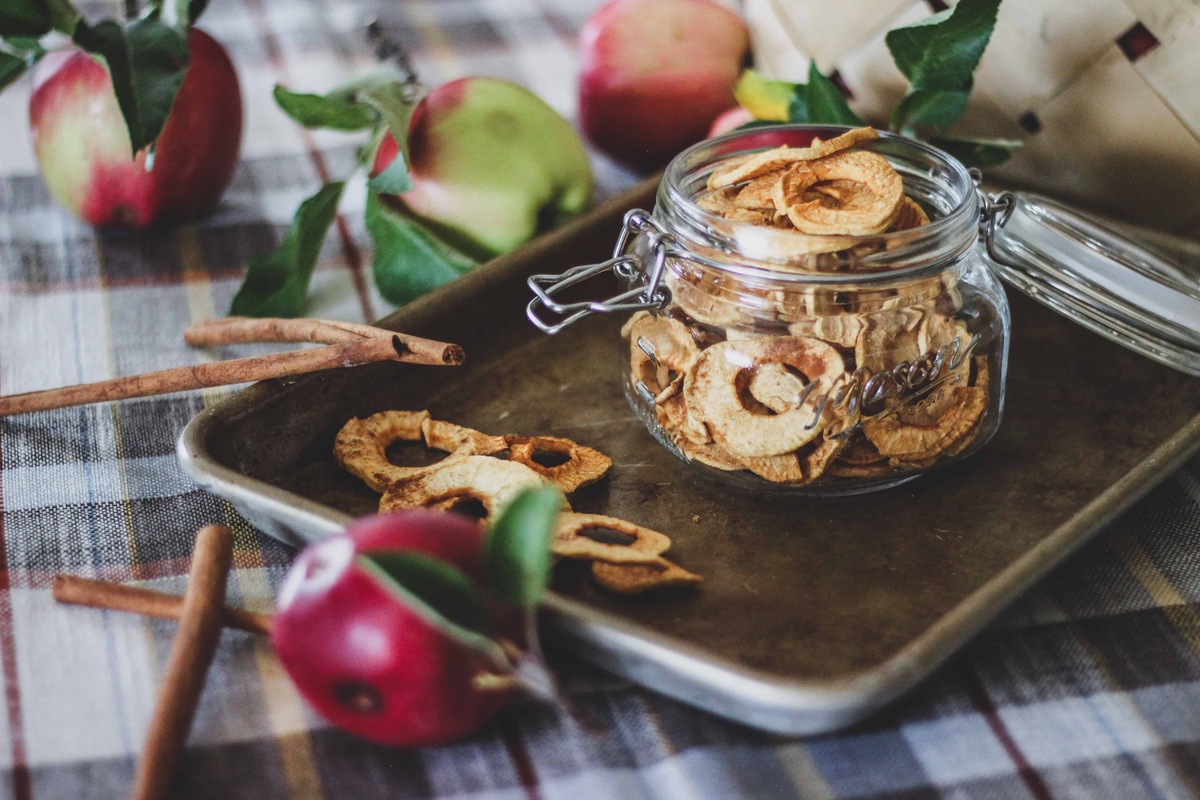
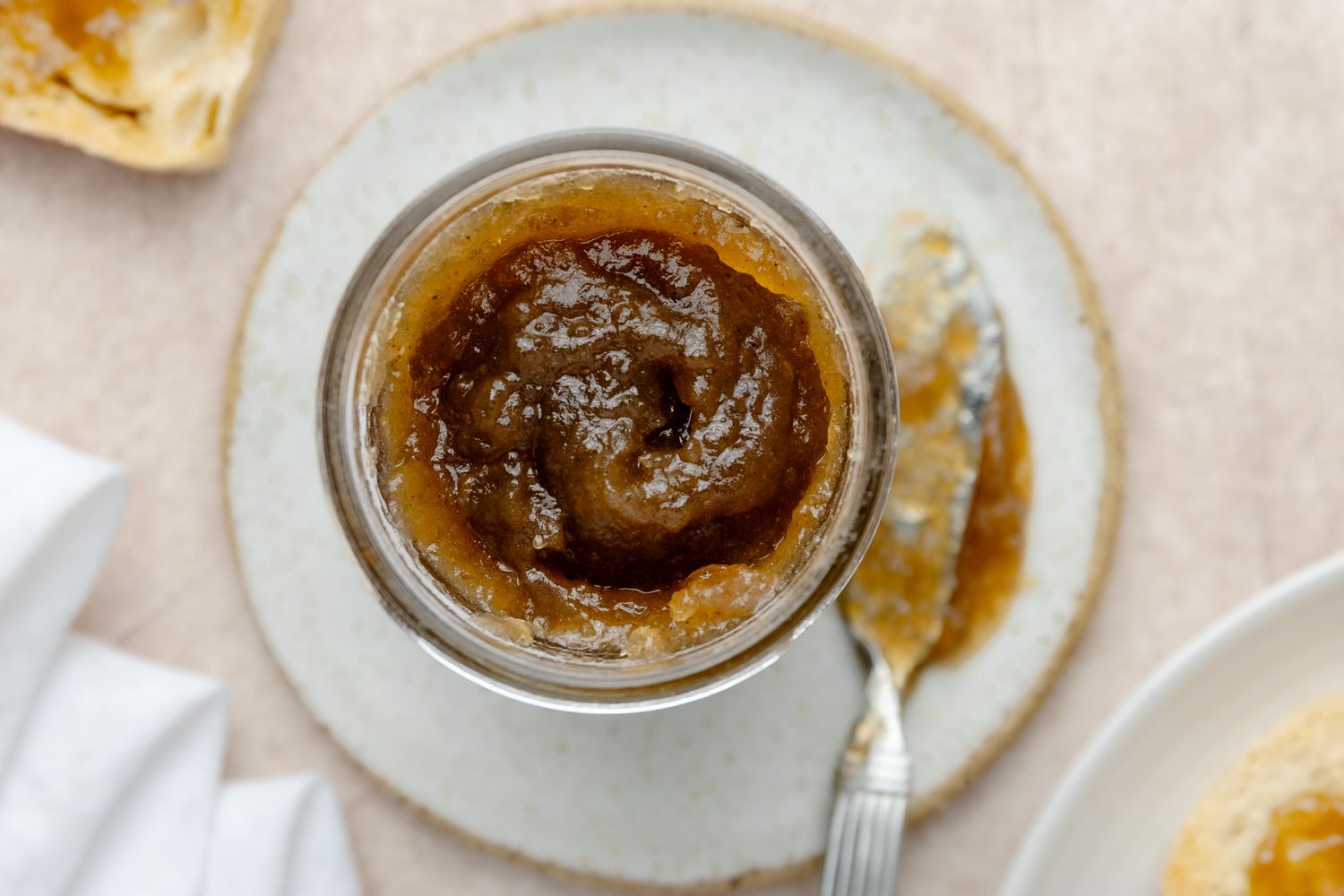
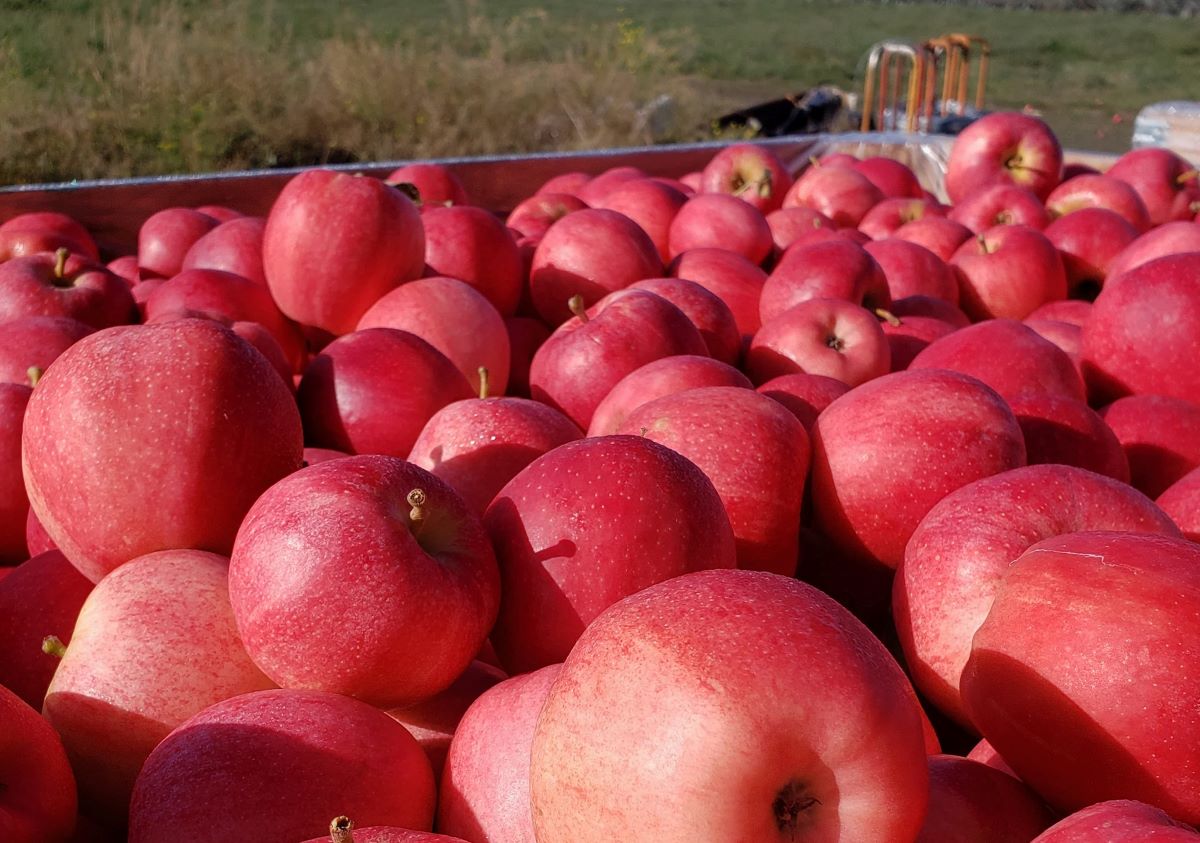
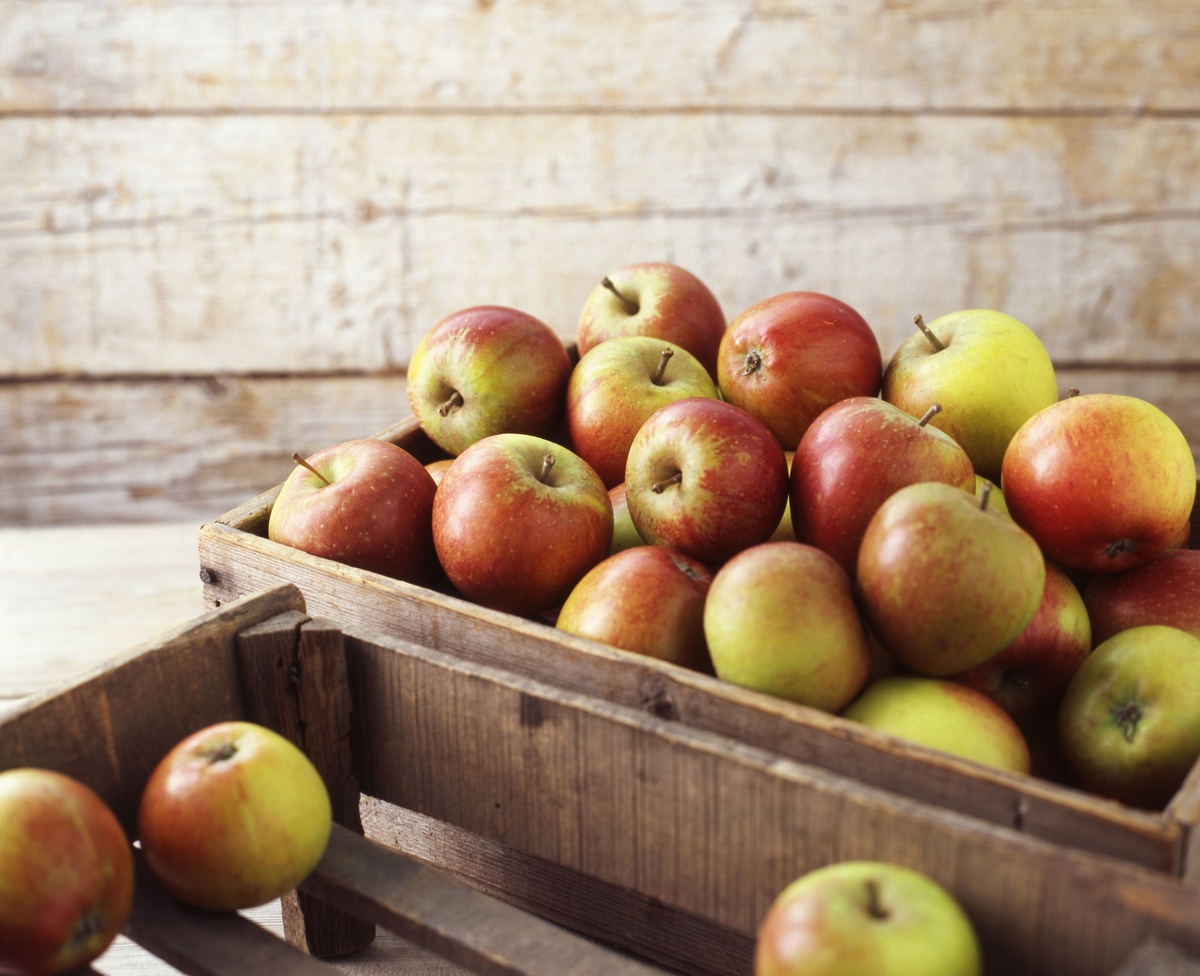
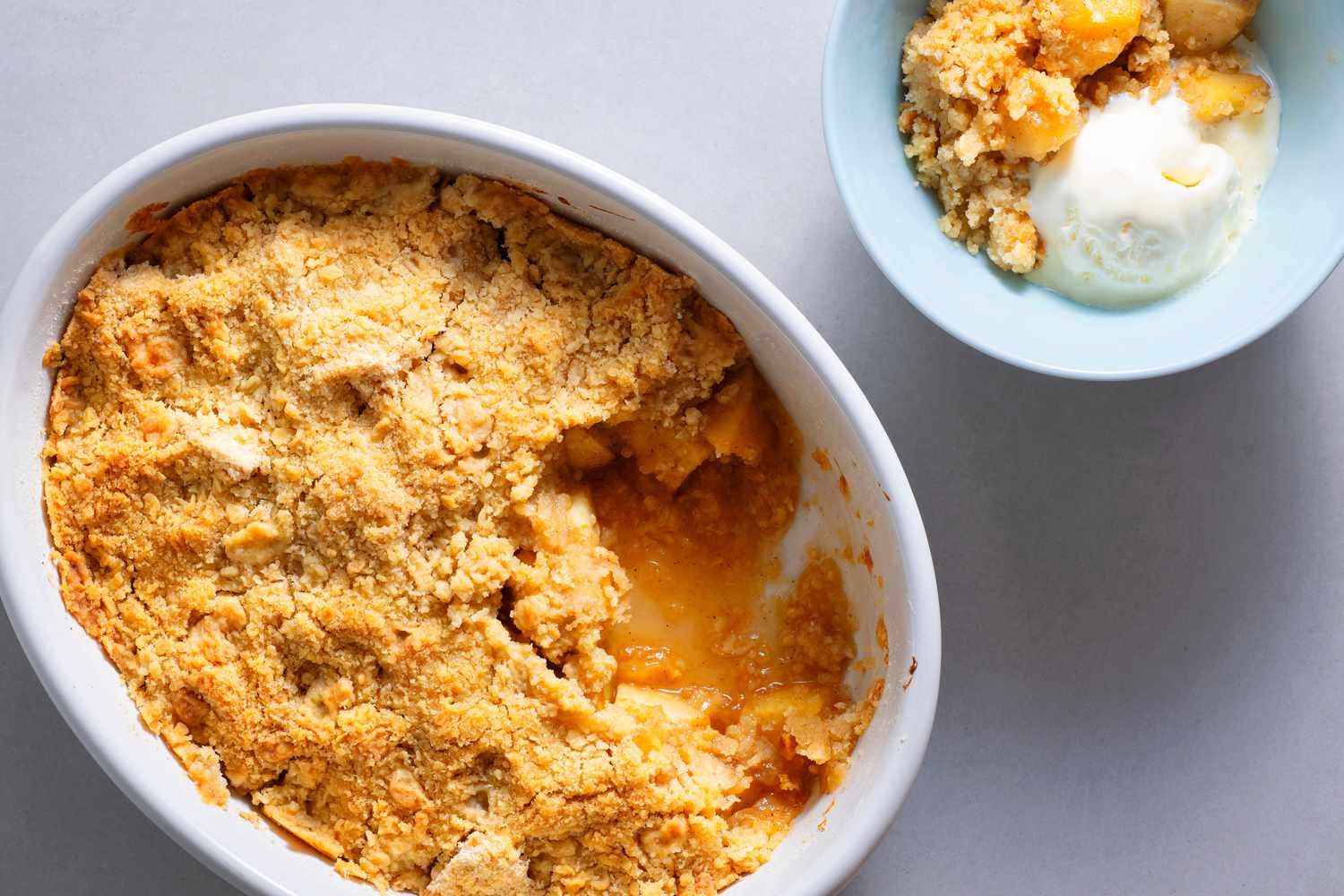
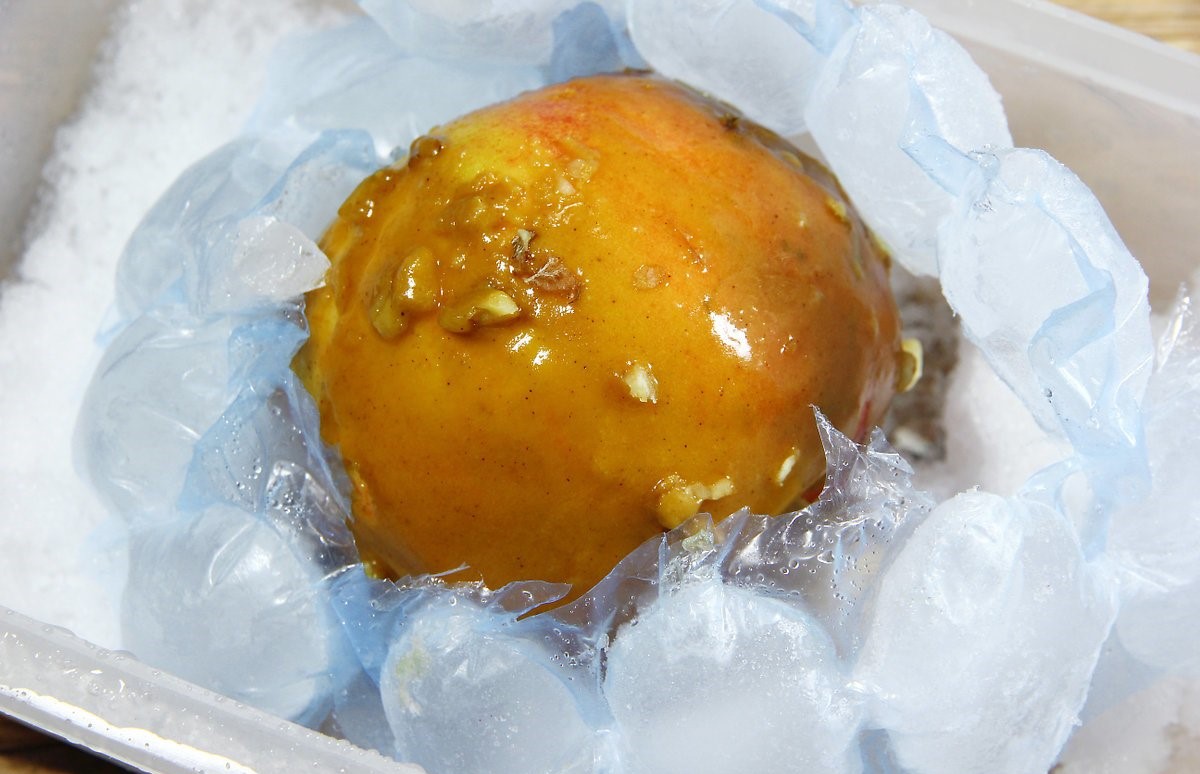

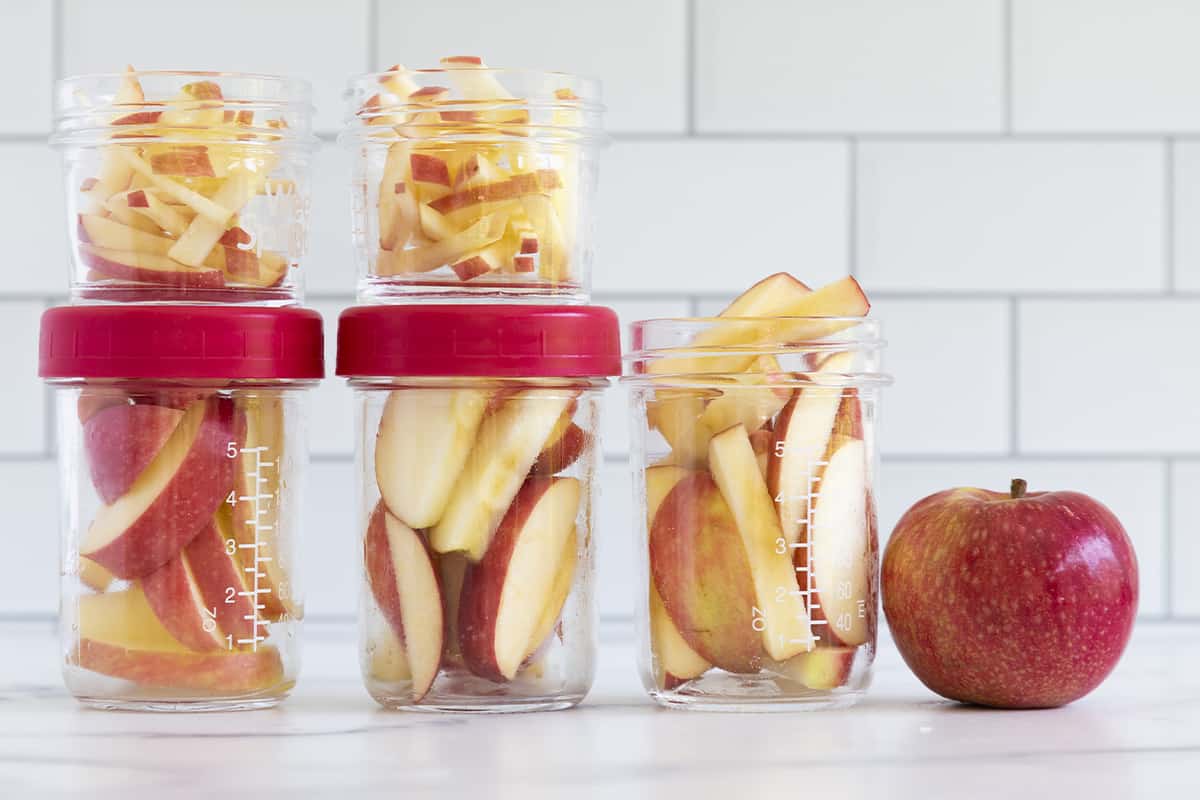
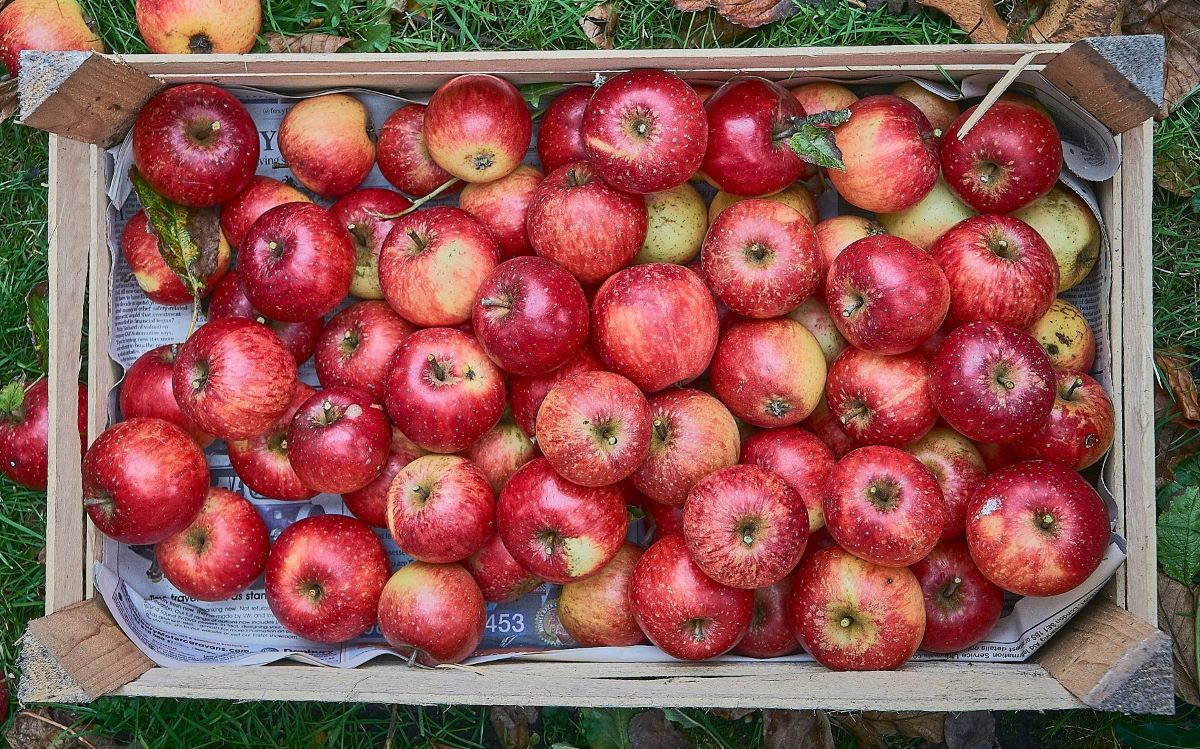
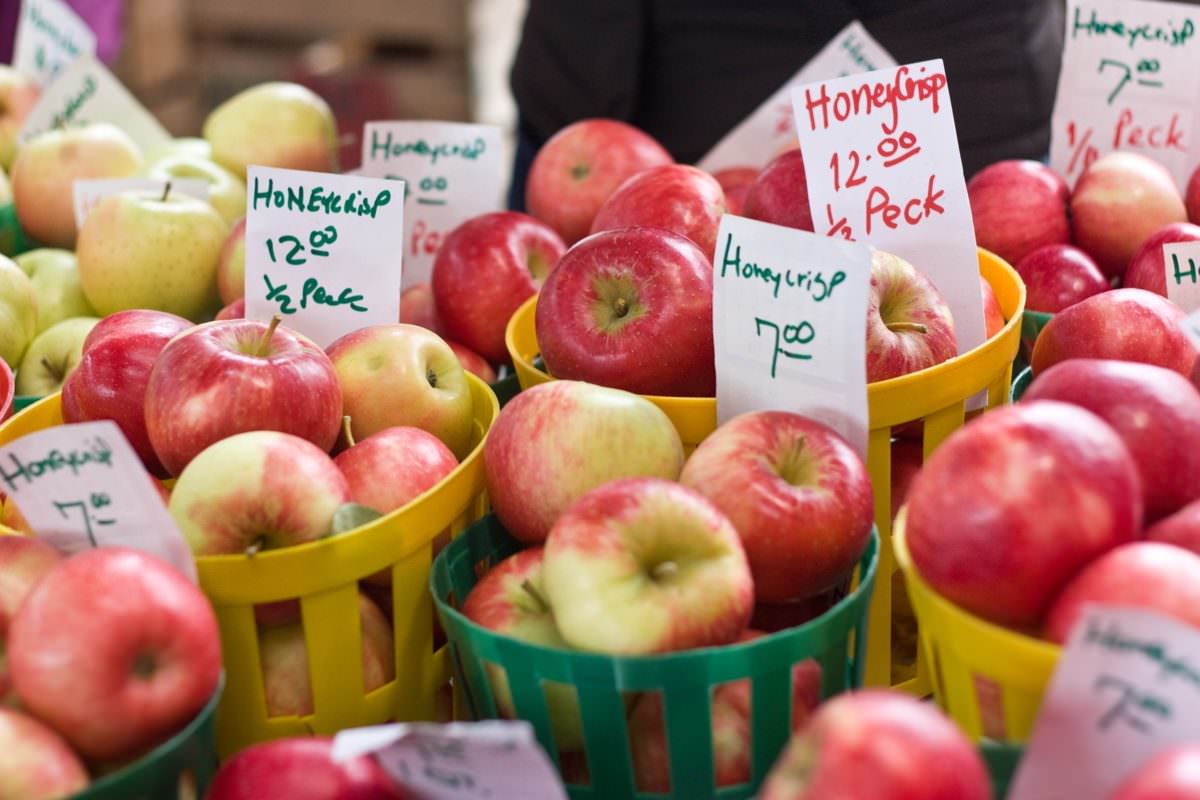
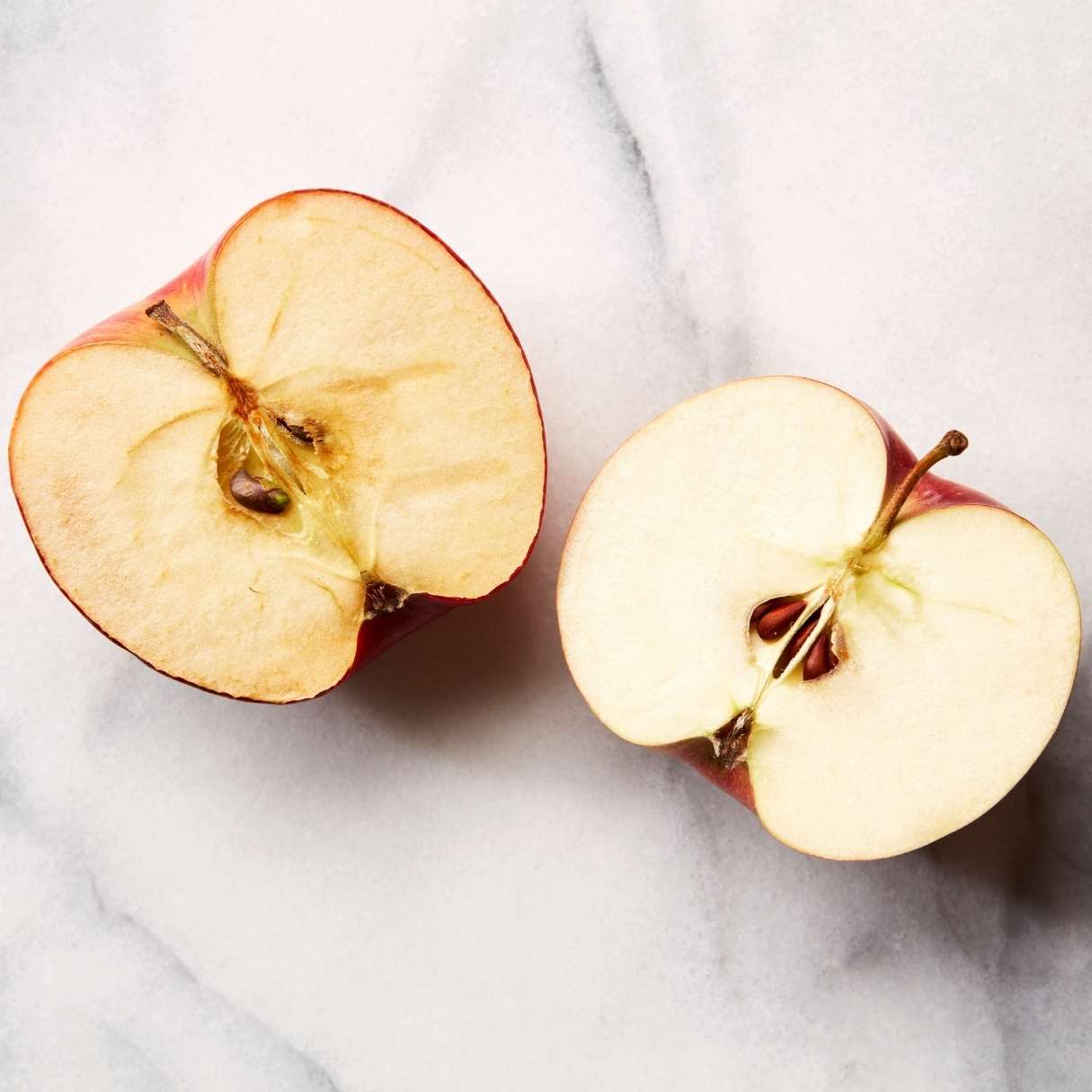
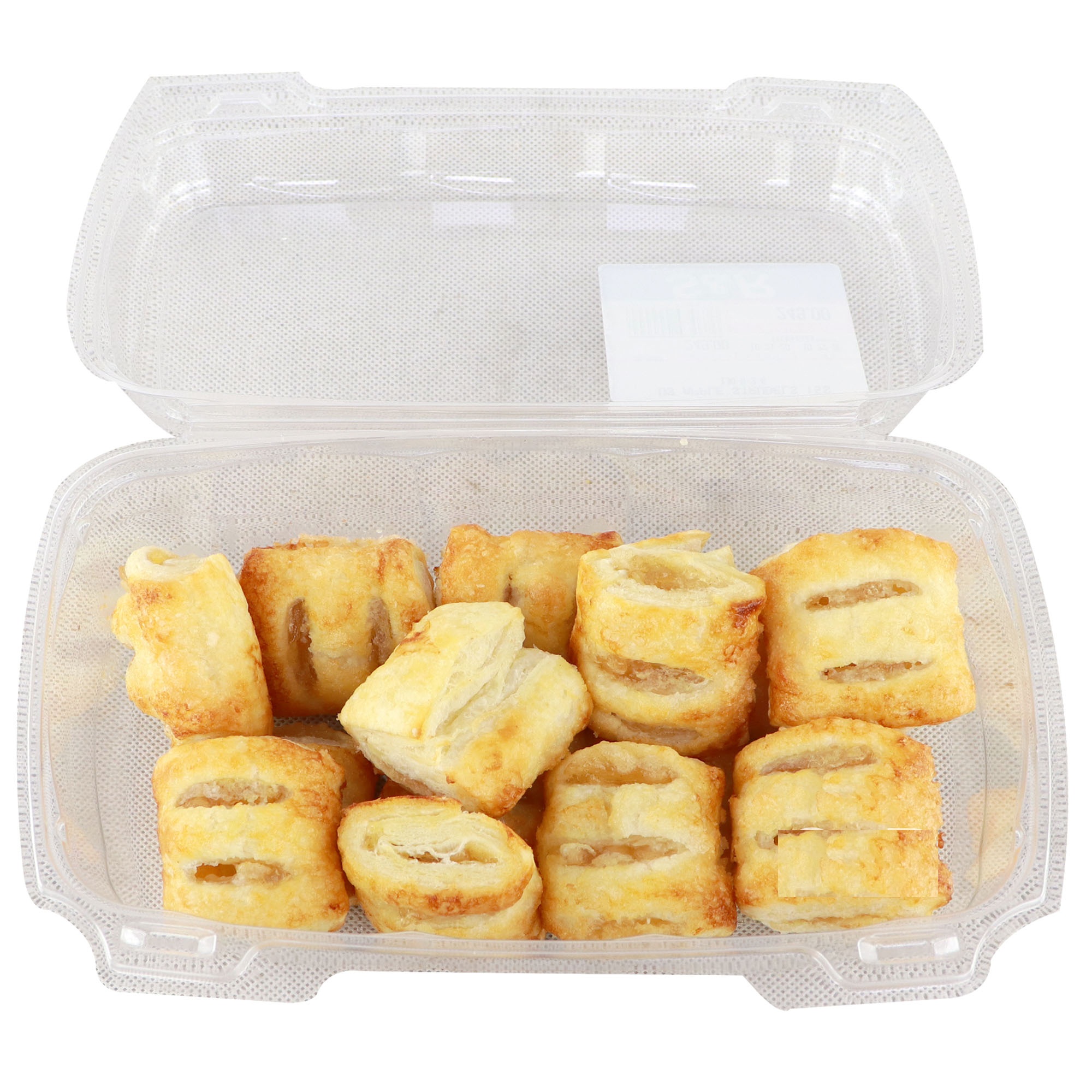

0 thoughts on “How To Store Apples In Fridge”